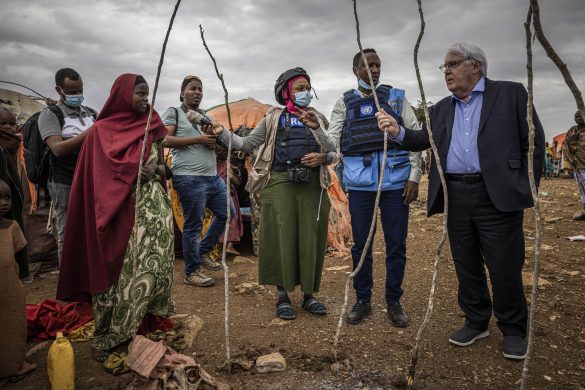Stenalderkost er blevet et modefænomen i rige lande, men fattige oprindelige folks naturlige miljø og ernæring forringes med en stigning i kroniske sygdomme til følge, advarer ernæringseksperter.
HONG KONG, 23 January 2014 (IRIN): Unprecedented levels of chronic non-communicable diseases are prompting health experts and indigenous activists to highlight a need to revert to the diets of our ancestors to regain lost nutrients (næringsstoffer).
This would also assist in improving society’s relationship with the earth, and to restoring both human and environmental health.
“The rise of the industrial model of agriculture has contributed greatly to people being disconnected from the food on their plates,” said Sarah Somian, a nutritionist based in Nice, France.
Nutritionists say many traditional and non-processed foods consumed by rural communities, such as millet (hirse) and caribou (rensdyrkød), are nutrient-dense (næringsrige) and offer healthy fatty acids (sunde fedtsyrer), micronutrients (mikronærings-stoffer), and cleansing properties widely lacking in diets popular in high- and middle-income countries.
Naturlig ernæring kan modvirke sygdomme
Indigenous diets worldwide – from forest foods such as roots and tubers in regions of eastern India, to cold-water fish, caribou, and seals in northern Canada – are varied, suited to local environments, and can counter malnutrition and disease, according to experts.
“For many tribal and indigenous peoples, their food systems are complex, self-sufficient, and deliver a very broad-based, nutritionally diverse diet,” said Jo Woodman, a senior researcher and campaigner with Survival International, a UK-based indigenous advocacy organization.
But the disruption of traditional lifestyles due to environmental degradation, and the introduction of processed foods, refined fats and oils, and simple carbohydrates (kulhydrater), contributes to worsening health in indigenous populations, and a decline in the production of nutrient-rich foodstuffs that could benefit all communities.
Kortlægning vil være til gavn for alle
“Traditional food systems need to be documented so that policymakers know what is at stake by ruining an ecosystem, not only for the indigenous peoples living there, but for everyone,” Harriet Kuhnlein, the founding director of the Centre of Indigenous Peoples’ Nutrition and Environment (CINE) at McGill University, Canada, told IRIN from Montreal.
Læs hele artiklen på: http://www.irinnews.org/report/99524/analysis-turning-to-ancient-diets-to-alleviate-modern-ills














